Expert’s Note: Korean BBQ represents the perfect fusion of our core expertise in meat cutting, marinade science, and interactive grilling. It’s not just a cooking method—it’s a social experience that turns dinner into theater. This guide bridges traditional Korean techniques with American home kitchen realities, giving you authentic flavors without the specialized equipment.
Korean BBQ at Home: Complete Setup Guide for Authentic Tabletop Grilling
“Korean BBQ is the conversation around the fire, reimagined for the modern table. It’s where precision slicing meets explosive flavor, where communal dining becomes participatory theater. The sizzle of thinly sliced beef on a tabletop grill, the communal wrapping of meat in crisp lettuce with garlic and ssamjang—this isn’t just eating. It’s an experience that transforms strangers into friends and meals into memories.”
Korean BBQ at Home: Complete Setup Guide for Authentic Tabletop Grilling
Download the Korean BBQ Setup Checklist - Equipment, Cuts & Marinades
Welcome to the vibrant, sizzling world of Korean BBQ—the most social and interactive way to enjoy meat since humans first gathered around fire. This isn’t just another grilling method; it’s a complete dining experience that combines exquisite meat preparation, complex marinades, and communal cooking into one unforgettable meal. Whether you’re dreaming of recreating your favorite Korean restaurant experience or discovering this culinary tradition for the first time, this guide will transform your dining table into an authentic K-BBQ haven.
🎯 THE KOREAN BBQ PHILOSOPHY: MORE THAN JUST GRILLING
Understanding the culture is as important as mastering the technique.
⚙️ The Three Pillars of Authentic K-BBQ
The Foundation of the Experience
- Communal Interactive Dining: Unlike Western BBQ where one person tends the fire, Korean BBQ is a shared, participatory experience. Everyone gathers around the grill, cooking their own meat and creating their perfect bites in real-time. It’s social dining at its most engaging.
- The Art of Ssam (Wrapping): The magic happens when you wrap grilled meat in lettuce or perilla leaves with rice, garlic, ssamjang (wrapping sauce), and various banchan (side dishes). Each person creates their perfect flavor combination with every bite.
- Marinade Mastery: Korean marinades are complex flavor systems that balance sweet, savory, salty, and umami. Unlike American BBQ rubs that form a bark, Korean marinades penetrate thin slices of meat, creating tender, flavorful results in minutes.
- Banchan Culture: The meal isn’t just about the meat. An array of small side dishes (banchan) accompanies the BBQ, providing contrasting flavors, textures, and temperatures that cleanse the palate between different meats.
🎯 K-BBQ vs. American BBQ: The Cultural Difference
🇺🇸 American BBQ
- Low & slow (4-18 hours)
- One pitmaster serves guests
- Large, tough cuts transformed
- Dry rubs and smoke-focused
- Individual plates served
- Focus on the meat itself
🇰🇷 Korean BBQ
- High heat (2-5 minutes per piece)
- Everyone cooks together
- Thin, tender cuts celebrated
- Wet marinades and quick grilling
- Communal sharing and wrapping
- Focus on the complete experience
🔪 THE ESSENTIAL K-BBQ CUTS: KOREAN BUTCHERY MASTERY
The secret to authentic K-BBQ starts with how the meat is cut.
🥩 The Holy Trinity of K-BBQ Cuts
Cuts That Define the Experience
- Bulgogi (Marinated Beef): Literally “fire meat,” this is the most famous K-BBQ dish. Typically made from ribeye or sirloin sliced paper-thin (⅛-inch or less) against the grain. The thin slicing allows the sweet-soy marinade to penetrate quickly and ensures lightning-fast cooking. For more on beef cuts, see our Beef Cuts Explained guide.
- Galbi/Galbi (Beef Short Ribs): The crown jewel of K-BBQ. Cut in the unique “LA Galbi” style—thinly sliced across the bone, creating strips with 3-4 small bones. This cut maximizes surface area for marinade and creates the perfect meat-to-bone ratio. The marinade caramelizes beautifully on the grill.
- Samgyeopsal (Pork Belly): Unmarinated, thick-cut pork belly. The simplicity allows the quality of the pork to shine. The thick fat renders on the grill, creating crispy, succulent bites. Learn more about this cut in our Pork Belly Master Guide.
- Dwaeji Bulgogi (Spicy Pork): Pork shoulder or butt thinly sliced and marinated in a spicy gochujang-based sauce. The fat content of shoulder makes it ideal for high-heat grilling without drying out.
📊 The Complete K-BBQ Cut Selection Matrix
🎯 Choosing the Right Cut for Your K-BBQ Experience
| Cut | Korean Name | Preparation | Marinade Style | Cook Time |
|---|---|---|---|---|
| Ribeye (Thin Sliced) | Bulgogi | Paper-thin, against grain | Sweet Soy | 30-60 seconds |
| Beef Short Ribs | LA Galbi | ¼-inch, across bones | Sweet Soy or Spicy | 2-3 minutes/side |
| Pork Belly | Samgyeopsal | ½-inch thick slices | None (salt/pepper) | 3-4 minutes/side |
| Pork Shoulder | Dwaeji Bulgogi | ⅛-inch thin slices | Spicy Gochujang | 1-2 minutes/side |
| Chicken Thighs | Dak Bulgogi | ¼-inch slices | Spicy or Soy-Garlic | 2-3 minutes/side |
| Beef Tongue | Hyeomit Gui | Paper-thin slices | Light Salt or None | 15-30 seconds/side |
🏠 THE HOME K-BBQ SETUP: EQUIPMENT MASTERY
You don’t need a professional restaurant setup to achieve authentic results.
🔥 Choosing Your Grill Setup
From Professional to DIY Solutions
- Professional Tabletop Gas Grill: The ideal choice if you’re serious about K-BBQ. Look for models with built-in ventilation, removable grill plates, and adjustable heat zones. The concave shape collects juices while allowing smoke to vent.
- Electric Tabletop Grill: Great for indoor use without ventilation issues. While it doesn’t get as hot as gas, it’s perfect for apartments and safer for families with children. Use a cast iron grill plate insert for better searing.
- Butane Portable Stove + Cast Iron: The most versatile and affordable option. Use a single-burner butane stove (like those used for hot pot) with a cast iron grill pan or skillet. This setup gives you excellent heat control and perfect searing. Check our Cast Iron vs Stainless Steel Guide for why cast iron excels here.
- Outdoor Grill with Small Skillet: For traditional BBQ enthusiasts, use your existing charcoal or gas grill with a small cast iron skillet placed directly on the grates. This creates a concentrated hot zone perfect for tabletop-style cooking.
- The DIY Ventilation Solution: If cooking indoors, open windows and use a box fan pointing outward. Place your grill near the ventilation. The key is moving air away from your smoke detectors!
🧂 THE FLAVOR FOUNDATION: MARINADES & SAUCES
The soul of K-BBQ lives in these complex, balanced flavor systems.
🥩 Bulgogi Marinade Master Formula
The Classic Sweet-Soy Base
- 1 cup soy sauce (use Korean gukganjang for authenticity)
- ½ cup brown sugar OR ¼ cup honey + ¼ cup sugar
- ½ Asian pear OR 1 kiwi (natural tenderizer)
- 8 cloves garlic, minced
- 2 tbsp sesame oil
- 1 tbsp grated ginger
- ½ onion, puréed
- 2 green onions, chopped
- 1 tbsp black pepper
Pro Tip: The Asian pear or kiwi contains enzymes that break down proteins, acting as a natural tenderizer. Marinate for 2-4 hours only—overnight will make the meat mushy.
🌶️ Gochujang Marinade Formula
The Spicy Korean Staple
- ½ cup gochujang (Korean red pepper paste)
- ¼ cup soy sauce
- 2 tbsp rice wine (mirin) or soju
- 2 tbsp sugar or honey
- 4 cloves garlic, minced
- 1 tbsp grated ginger
- 1 tbsp sesame oil
- 1 tsp black pepper
- 1 Asian pear, puréed (optional)
Pro Tip: Gochujang varies in heat—taste yours first! Adjust sugar based on your preferred spice level. Perfect for pork and chicken.
🥬 The Ssam (Wrapping) Station Setup
Building the Perfect Bite
- Lettuce Leaves: Butter lettuce, red leaf lettuce, or green leaf lettuce work best. They’re pliable and cup-shaped for easy wrapping. Wash and dry thoroughly, then keep chilled until serving.
- Perilla Leaves (Kkaennip): If you can find them, these aromatic leaves add an authentic, minty-basil flavor that’s essential to traditional K-BBQ.
- Ssamjang (Wrapping Sauce): The magical glue that holds everything together. Mix ¼ cup doenjang (soybean paste), 2 tbsp gochujang, 1 tbsp sesame oil, 1 tsp sugar, 1 minced garlic clove, and 1 chopped green onion.
- Garlic and Chili: Thinly slice raw garlic cloves and fresh green or red chilies. The sharp raw garlic mellows when wrapped with hot meat.
- Cooked Rice: Short-grain white rice is traditional. Serve slightly warm or at room temperature.
- Kimchi: Both fresh and grilled kimchi have their place. Grill some kimchi alongside your meat for a caramelized, complex flavor.
📋 THE COMPLETE K-BBQ MEAL PROGRESSION
The Traditional Serving Order for Optimal Experience
Phase 1: Light Start (First 20 min)
Bulgogi (beef), chicken, or pork belly. Lighter flavors to start the meal and get everyone comfortable with grilling.
Phase 2: Main Event (30-45 min)
LA Galbi (short ribs), spicy pork, more complex marinades. The heart of the K-BBQ experience.
Phase 3: Bold Finish (20-30 min)
Intense flavors like marinated galbi, grilled kimchi, any special requests. Slower pace as everyone fills up.
🚨 K-BBQ TROUBLESHOOTING GUIDE
🎯 Solving Common Home K-BBQ Problems
| Problem | Symptoms | Cause | Solution |
|---|---|---|---|
| Meat Sticking to Grill | Tearing, difficult to flip | Grill not hot enough; too much sugar in marinade | Pre-heat grill 10+ minutes; pat meat dry before grilling; use less sugar in marinade |
| Too Much Smoke | Smoke alarms triggering; hazy room | Excess marinade dripping; heat too high; fatty cuts | Pat meat dry; moderate heat; trim excess fat; improve ventilation |
| Marinade Burning | Black, bitter crust | Sugar caramelizing too fast; heat too high | Reduce sugar in marinade; cook at medium heat; pat excess marinade off |
| Tough, Chewy Meat | Rubbery texture, hard to chew | Wrong cut; sliced with grain; overcooked | Use tender cuts; slice against grain; cook 1-2 minutes max per side |
| Bland Flavors | Lacks depth, one-dimensional | Weak marinade; insufficient salt; poor quality ingredients | Balance sweet/salty/umami; use Korean-specific ingredients; marinate adequately |
🏁 YOUR KOREAN BBQ JOURNEY BEGINS
Korean BBQ is more than a meal—it’s a gateway to a rich culinary culture that celebrates community, balance, and the pure joy of shared eating. The first time you gather friends around a sizzling tabletop grill, watching their faces light up as they create their perfect wraps, you’ll understand why this tradition has captivated food lovers worldwide.
Start simple with bulgogi and samgyeopsal. Master the basic techniques of thin slicing, quick grilling, and the art of the ssam wrap. Then gradually expand your repertoire to include LA galbi, spicy pork, and more adventurous cuts.
Remember that perfection comes with practice. Your first marinade might be too sweet, your grill might smoke too much, your lettuce wraps might fall apart. None of it matters. What matters is the laughter around the table, the shared experience of discovery, and the creation of memories that will last long after the grill has cooled.
Your table is waiting. The marinades are prepared. The lettuce is chilled. The only thing missing is the sizzle of meat and the joy of shared discovery. Welcome to Korean BBQ.
Start with the classic – our complete bulgogi marinade and technique guide
Expand Your Global BBQ Knowledge: Explore other international grilling traditions.

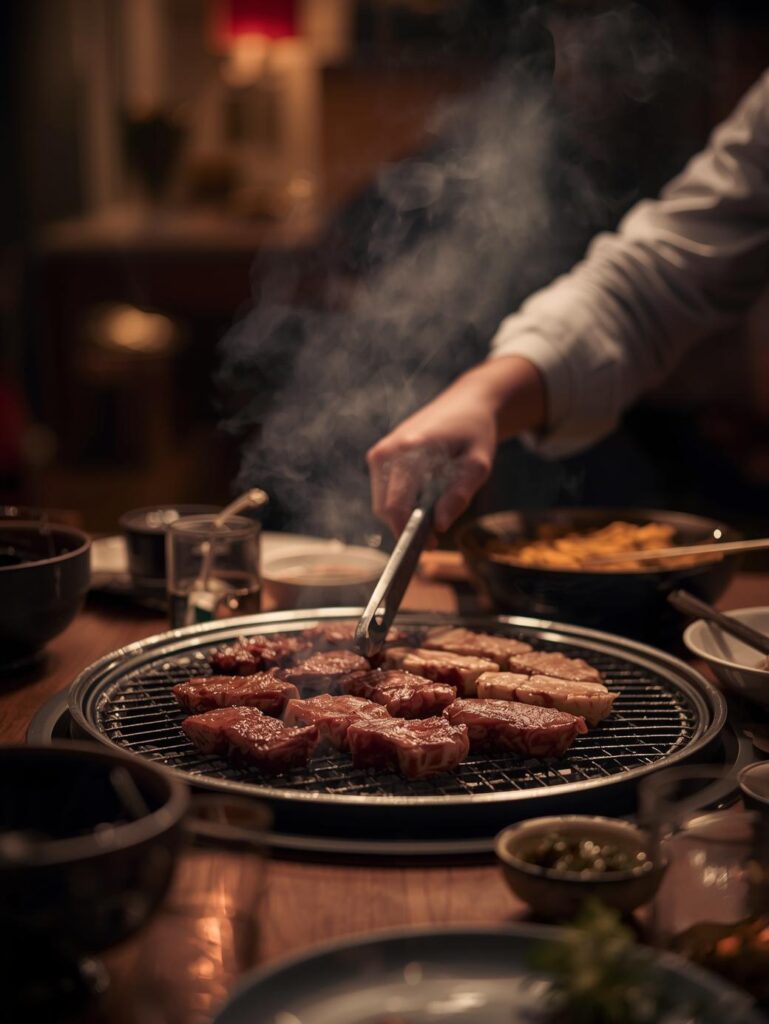

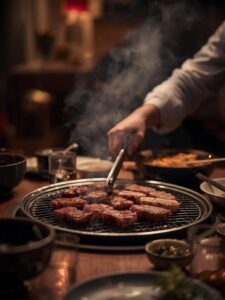
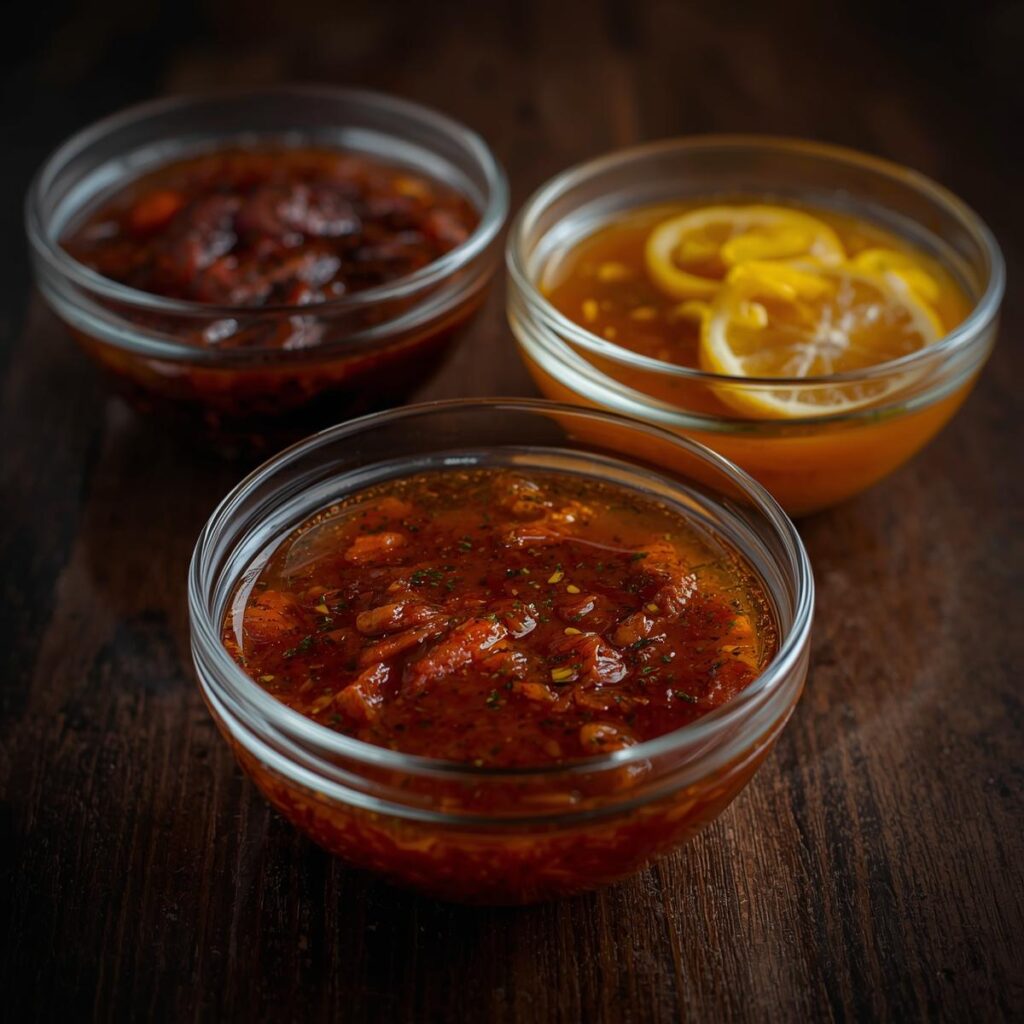
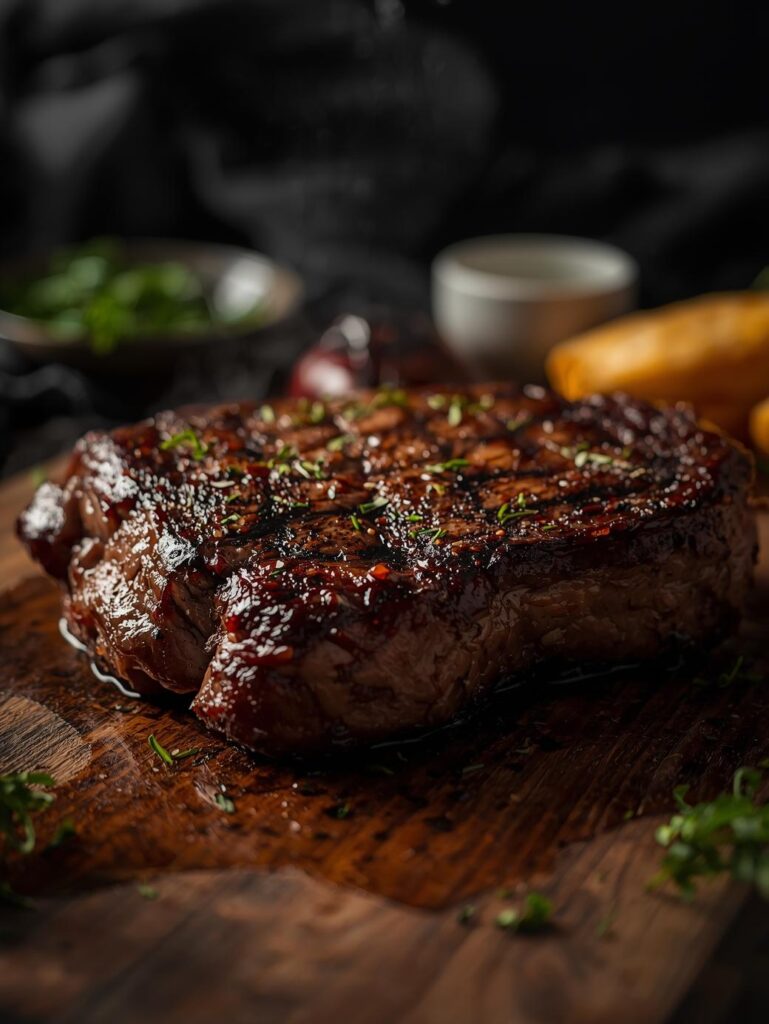
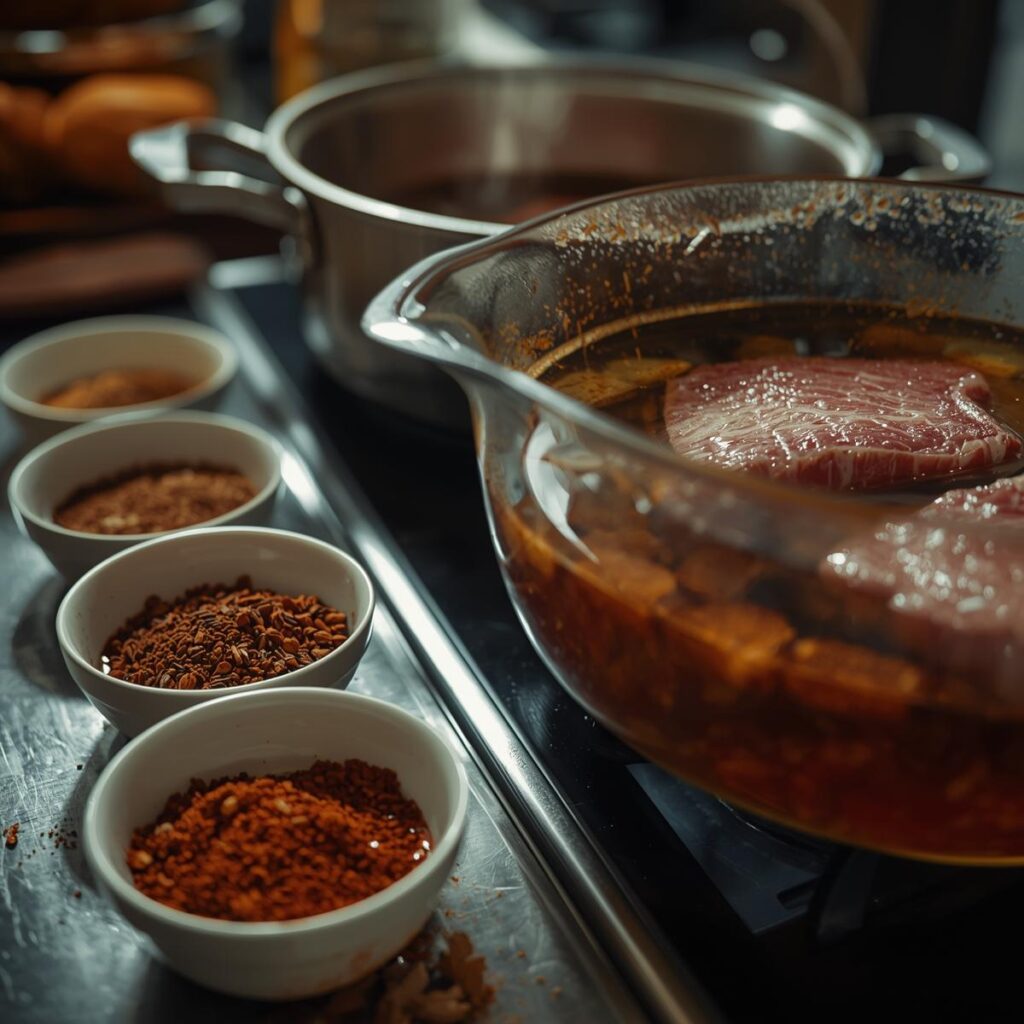
Pingback: Global & Regional BBQ Styles: Your World Tour of Fire & Flavor